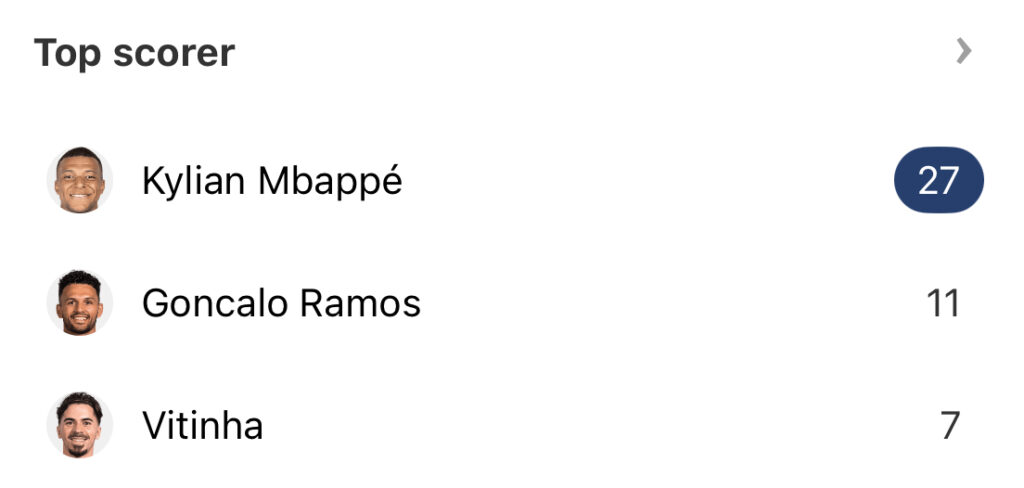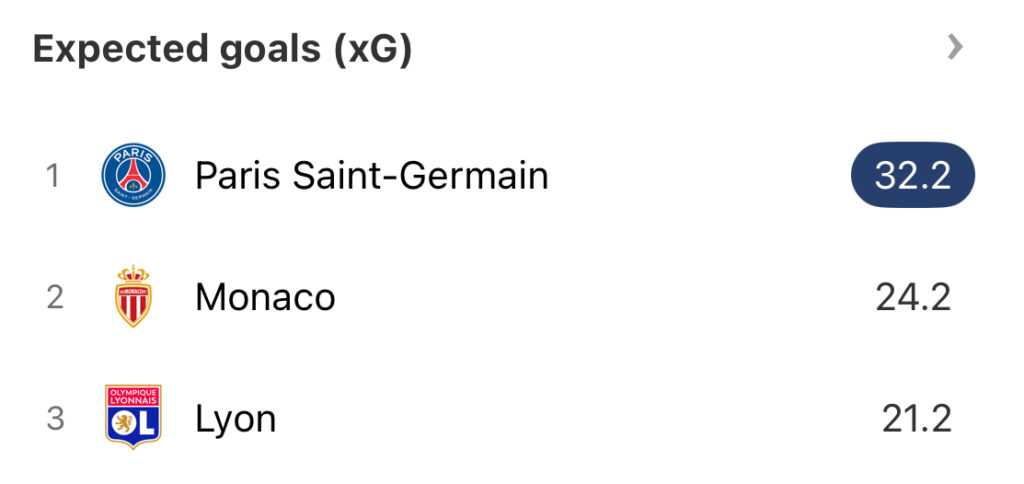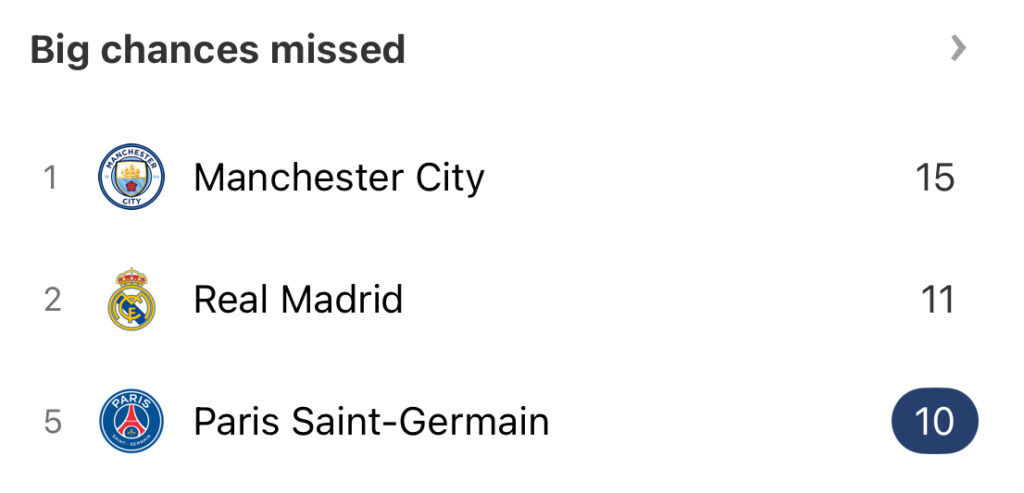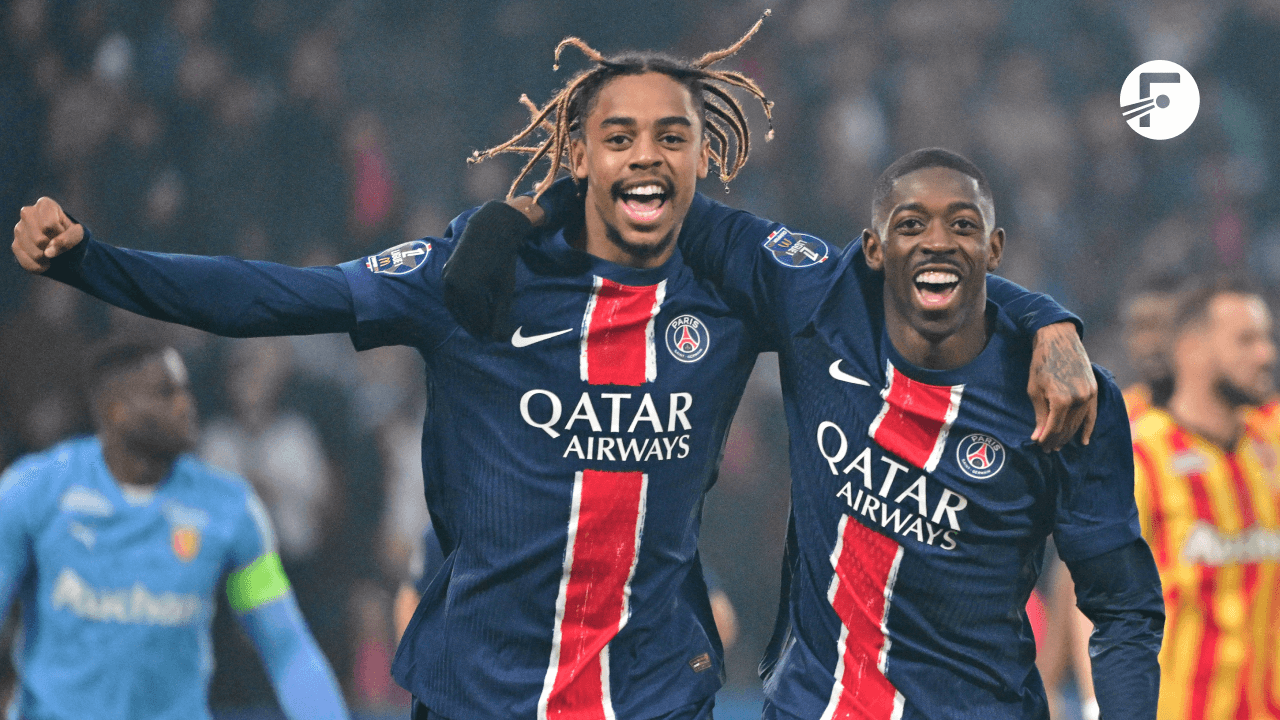Paris Saint-Germain’s first 12 Ligue games following the departure of Kylian Mbappé could hardly have gone much better. Although it is early days yet, their current points per game average of 2.67 is the highest in Ligue 1 history. Their attack does not seem to have suffered a hit domestically as they have scored 36 goals in these games, but their Champions League record suggests there should be some cause for concern.
By Neel Shelat
Kylian Mbappé’s move to Real Madrid undoubtedly was the biggest transfer of the summer. It marked the beginning of a new era for all parties involved. For Real Madrid, the Frenchman’s arrival epitomised their shift to a new generation alongside fellow young superstars such as Vinícius Júnior and Jude Bellingham. For Mbappé himself, this was a great opportunity to finally get his hands on the UEFA Champions League trophy after repeated failures in France. For Paris Saint-Germain, meanwhile, his departure drew the curtain on their superstar era and gave them a chance to build something new.
The Parisians were slowly assembling a more youthful and domestically-sourced squad over recent years, as the signings of Vitinha, Nuno Mendes and Hugo Ekitiké in 2022 underscored. They ramped up their efforts a notch following the departures of Lionel Messi and Neymar the next summer, bringing in the likes of Randal Kolo Muani, Bradley Barcola and Manuel Ugarte. With Mbappé gone, some of these players have had the opportunity to really take over the spotlight, joined by further signings such as João Neves, Désiré Doué and Willian Pacho as well as some academy graduates, most notably Warren Zaïre-Emery.
More balanced attack
Goalscoring certainly was not an issue for Paris Saint-Germain last season, but the formulation of their attack was quite unconventional and caused them to be extremely reliant on one player. Of course, counting on Mbappé to score a lot of goals is not a bad idea by any means, but his unique profile forced Luis Enrique to come up with some convulated solutions to get the best out of him.
The main issue with Mbappé of late — which Real Madrid are also having to contend with — is that he doesn’t perfectly fit any conventional role. He is not a left winger in the sense that he rarely drifts out to the touchline and does not predominantly want to take on a full-back, but he also isn’t a line-leading striker since he does drift around in the left half-space and likes to show for the ball. Such a fluid player was not easy to accomodate in Luis Enrique’s positional system, so he had to come up with some innovative solutions like sending central midfielder Vitinha out to the touchline in the final third to free up the French forward. This worked out quite well for Mbappé as he scored a whopping 27 Ligue 1 goals, but only one other PSG attacker even managed to break into double digits.

Evidently, it was not a given that PSG’s attack would instantly click after Mbappé’s departure, so Luis Enrique deserves his fair share of credit for ensuring a smooth transition. The French champions’ new attack is far more balanced as they have seriously threatening players on both wings and an exciting midfield contingent who like to – and crucially have the freedom to – get forward. In possession, they still form a 3-2-5-adjacent shape with the left back staying deep while Achraf Hakimi pushes on and links up well with Ousmane Dembélé. Bradley Barcola has been sensational on the left after being freed from Mbappé’s shadow and Neves has posed the most attacking threat out of a fluid midfield trio usually including Vitinha and Zaïre-Emery, with Marco Asensio or Lee Kang-in’s use as a false nine further facilitating their advances.
All in all, PSG’s attack has remained streets ahead of even their closest rivals in France.

Missing star-power
While it has all been smooth sailing on the domestic front, Paris Saint-Germain’s continental campaign has been quite concerning so far. As they enter the second half of the group stage this week with a crunch fixture against Bayern Munich, the French champions currently find themselves outside the top 24 and therefore out of contention for the knockout stages, and are guaranteed to stay so unless they win.
There isn’t one simple explanation for PSG’s contrasting fortunes across these competitions. Part of their Champions League struggles can certainly be chalked up to poor finishing, as they have created chances worth just 7.2 xG but scored just three goals. In fact, they are the biggest underperformers in the competition based on our expected points model, as they currently sit 21 places lower than their projected fourth spot with five fewer points than their projected nine.

Of course, we must apply a small sample size caveat in the UCL, and the trouble is that PSG only have four more games to shoot up the table. Their finishing problems can largely be attributed to their lack of a striker, as Gonçalo Ramos has been out injured and Luis Enrique has not trusted Kolo Muani (a signing reportedly pushed by the ownership group rather than the head coach or sporting director) in that role. The false nine, while effective against the lower blocks in Ligue 1, has not been the best option for the more closely-contested and end-to-end matches in the Champions League.
In this respect, then, it is safe to say that PSG are indeed missing Mbappé. He had the quality to single-handedly take the big games by the scruff of their neck and make a telling difference, but nobody else in their squad can do that to same degree now. Dembélé shows some flashes of brilliance but outweighs them with his poor decision-making, while young Barcola is naturally yet to show the level of consistency and clinicality on the big nights that PSG’s all-time top-scorer did. A striker could help to some extent, but Mbappé’s star-power is obviously almost impossible to replace.
(Cover image from IMAGO)
You can follow every PSG game on FotMob – with deep stats, xG, and players ratings. Download the free app here.
